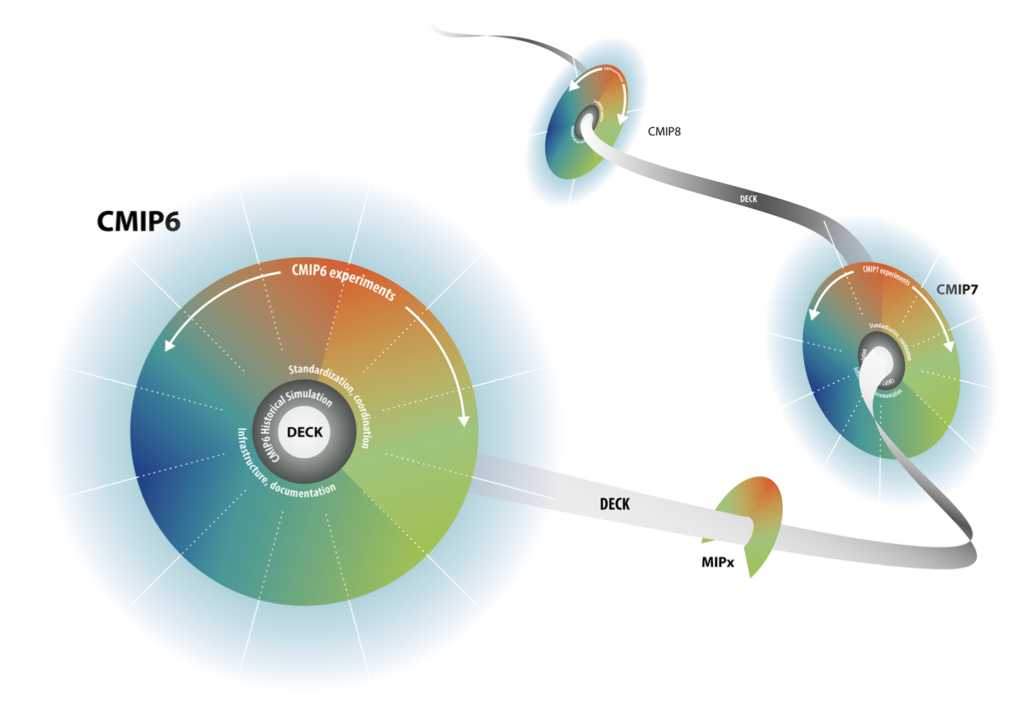How will CERTAINTY contribute to CMIP7?
The Coupled Model Intercomparison Project (CMIP) of the World Climate Research Programme is an international climate modelling project designed to better understand past, present and future changes in the climate.
CMIP has been coordinating model experiments across the climate science community since 1995. Over the years, it has become one of the cornerstones of climate science worldwide, providing crucial information to the Intergovernmental Panel on Climate Change (IPCC). Preparations for the seventh phase of the project (CMIP7) are well underway.
CERTAINTY involves three state-of-the-art CMIP models: EC-Earth, NorESM, and UKESM.
CERTAINTY will contribute to CMIP7 by supporting efforts aimed at improving the description of aerosol-cloud-radiation interactions in the models as well as by providing support for model developments required for participation in selected CMIP7 model intercomparison projects (MIPs).
More specifically, CERTAINTY aims to improve the description of aerosol lifecycles in the ESMs with a focus on ice nucleating particles (INP) and cloud condensation nuclei (CCN). New parameterizations of primary ice formation on INP and different mechanisms of secondary ice production will be developed and implemented. Another line of work aims to improve the description of cloud droplet formation on aerosols (activation) and warm cloud microphysics. New parameterizations will be developed and tested to account for the impact of co-condensation and surface tension on CCN growth from semi-volatiles and surfactants. Moreover, a common parameterization of the vertical velocities in updrafts will be implemented and evaluated as part of an intercomparison study involving the three ESMs.
For participation in CMIP, models need to comply to an experimental protocol in terms of forcings and provision of output. CERTAINTY supports the configuration of EC-Earth and UKESM for CMIP7, targeting MIPs focused on aerosols and atmospheric chemistry (AerChemMIP), radiative forcing (RFMIP) and decadal climate prediction (DCPP). CERTAINTY will assess the impact of including aerosol-cloud-radiation interactions on climate predictability on subseasonal-to-decadal time scales. As a contribution to DCPP, a set of prediction experiments will be conducted with the latest, fourth generation of the EC-Earth model (EC-Earth4).

Figure 1. CMIP evolution. CMIP will evolve but the DECK will provide continuity across phases, from the CMIP6 paper by Eyring et al. (2016), available at www.geosci-model-dev.net/9/1937/2016/.
